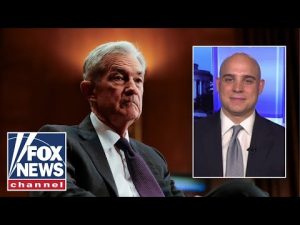Dr. Umar Johnson, a self-proclaimed leader in the push for pan-Africanism, finds himself in a financial predicament, and he’s asking for help. His personal and business bank accounts are frozen, leaving him without access to his funds. For someone who has spent many years soliciting funds for educational purposes with the promise of opening a school, this situation raises more than a few eyebrows. His plea for financial assistance from supporters sparks questions about financial responsibility, transparency, and the overall trust placed in figures like Dr. Umar.
Dr. Umar’s situation serves as a glaring example of the importance of sound financial management, particularly for those in positions of public influence. It appears that Dr. Umar did not separate his personal and business finances, a basic tenet of financial literacy. This lack of proper oversight has now left him with no immediate access to money. For anyone handling public donations and promising significant projects like a school, this is inexcusable. Individuals and organizations must be transparent and prudent with their financial dealings to maintain credibility.
Furthermore, the reliance solely on digital currencies without alternative assets or investments points to a fundamental oversight in financial planning. Basic financial security involves diversifying holdings. Simple steps such as having a stock portfolio, owning tangible assets, and maintaining credit lines can provide a safety net during financial disruptions. Dr. Umar seems to have neglected these security measures. This oversight questions his ability to manage resources effectively, a key skill necessary to run any educational institution successfully.
The broader issue here is accountability to supporters and the public, which is the bedrock of trust. Dr. Umar has been collecting funds for over a decade with promises that materialized into little action. It is crucial for people, especially those continually receiving public donations, to provide clear updates and concrete outcomes. Without these, public trust erodes, and skepticism grows, not only harming the individual’s cause but also casting doubt on similar grassroots efforts.
In essence, this situation serves as a cautionary tale about personal responsibility and the need for accountability when managing public funds. Those donating hard-earned money deserve transparency and assurance that their contributions are used wisely. Financial responsibility is more than just a personal virtue; it is a public duty for those claiming to lead societal change. As Americans, embracing core traditional values like accountability, transparency, and responsibility can ensure similar narratives do not unfold in the future, preserving the collective faith in genuine community efforts.







